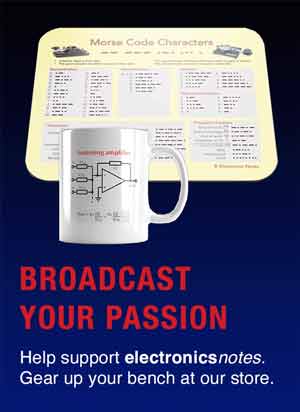What is SCART
The SCART connector system is an older audio & video connection system used mainly within Europe.
SCART includes:
SCART introduction
The SCART connection system is an older connection standard used mainly within Europe to connect different audio and video systems together. It appears on televisions, video recorders, DVD players and many other items enabling the video to be streamed from one unit to another.
The name for the SCART connector comes from the group that devised it: Syndicat des Constructeurs d’Appareils Radiorécepteurs et Téléviseurs. As the name of the organisation indicates, this was a French consortium of television manufacturers.
Although the connector is rather unwieldy and the cables are thick and difficult to manage, the SCART standard caught on and was used for many early televisions, video cassette recorders, VCRs, early gaming systems and the like. It was even used for some professional equipment as well.
The advantage of SCART is that it is able to handle composite, audio, and RGB data. Additionally using wide flat pins the connections are less prone to damage than the round pins used in some other connectors. With SCART connectors and cables being used in many areas, a robust connector is a great advantage.
What is SCART
SCART connectors and cables are mainly used for standard definition video signals like RGB, composite and S-Video - plus stereo and mono audio signals.
In view of the fact that SCART was designed to carry analog standard-definition content in the days before digital television became commonplace its use is now declining. Digital television and other more compact systems like HDMI have increased in use and SCART use has significantly dropped as it cannot carry digital signals. Nevertheless SCART connectors are still incorporated into most modern televisions to enable connectivity with older AV equipment.
SCART was first released on equipment in 1977 and it was standardised as CENELEC document number EN 50049-1, but is also sometimes referred to as IEC 933-1.
There is also a Japanese version of the SCART connector. This is often referred to as Japanese RGB-21 connector, and it is standardised under the Japanese organisation EIAJ TTC-003, and sometimes called JP-21. It uses similar signals and the same connector, but it has a different pinout. If a picture with red video with no audio is experienced, this is indicative of mismatching JP-21 SCART with European SCART connectors.
European SCART connector pinout
The SCART connector pinout is useful in determining any errors that may occur and for wiring any new connections.
| Pinout for European SCART EN 50049-1 |
|
|---|---|
| SCART Connector Pin Number | SCART Pin Function |
| 1 | Audio output (right) |
| 2 | Audio input (right) |
| 3 | Audio output (left/mono) |
| 4 | Audio ground (pins 1, 2, 3 & 6 ground) |
| 5 | RGB Blue ground (pin 7 ground) |
| 6 | Audio input (left/mono) |
| 7 | RGB Blue up |
| 8 | Status & Aspect Ratio |
| 9 | RGB Green ground (pin 11 ground) |
| 10 | Control bus (AV.link) |
| 11 | RGB Green up |
| 12 | Reserved / Data 1 (non-standard) |
| 13 | RGB Red ground (pin 15 ground) |
| 14 | Normally Data signal ground (pins 8, 10 & 12 ground) |
| 15 | RGB Red up |
| 16 | Blanking signal up |
| 17 | Composite video ground (pin 19 & 20 ground) |
| 18 | Blanking signal ground (pin 16 ground) |
| 19 | Composite video output |
| 20 | Composite video input |
| 21 | Shell/Chassis |
Japanese SCART connector JP21 pinout
The pin connections or pinout for the Japanese SCART connector also known as JP21 is different to that of the original French or European SCART
| Pinout for Japanese SCART JP21 |
|
|---|---|
| SCART Connector Pin Number | SCART Pin Function |
| 1 | Audio input (left) |
| 2 | Audio output (left) |
| 3 | Audio ground |
| 4 | Audio ground |
| 5 | Audio input (right) |
| 6 | Audio output (right) |
| 7 | Video ground |
| 8 | Video ground |
| 9 | Composite video input |
| 10 | Composite video output |
| 11 | AV control input |
| 12 | Ym input |
| 13 | Red signal ground |
| 14 | Ground |
| 15 | Red signal I/O |
| 16 | Ys input |
| 17 | Green signal ground |
| 18 | Blue signal ground |
| 19 | Green signal I/O |
| 20 | Blue signal I/O |
| 21 | Shell/Chassis |
 Written by Ian Poole .
Written by Ian Poole .
Experienced electronics engineer and author.
More Audio Video Topics:
HDMI
SCART
DisplayPort
DVI
Loudspeaker technology
Headphones & earphones
Bluetooth speakers
Stereo sound
Microphones
Audio compact cassettes
Vinyl record technology
Digital radio
DVB television
Return to Audio / Video menu . . .




